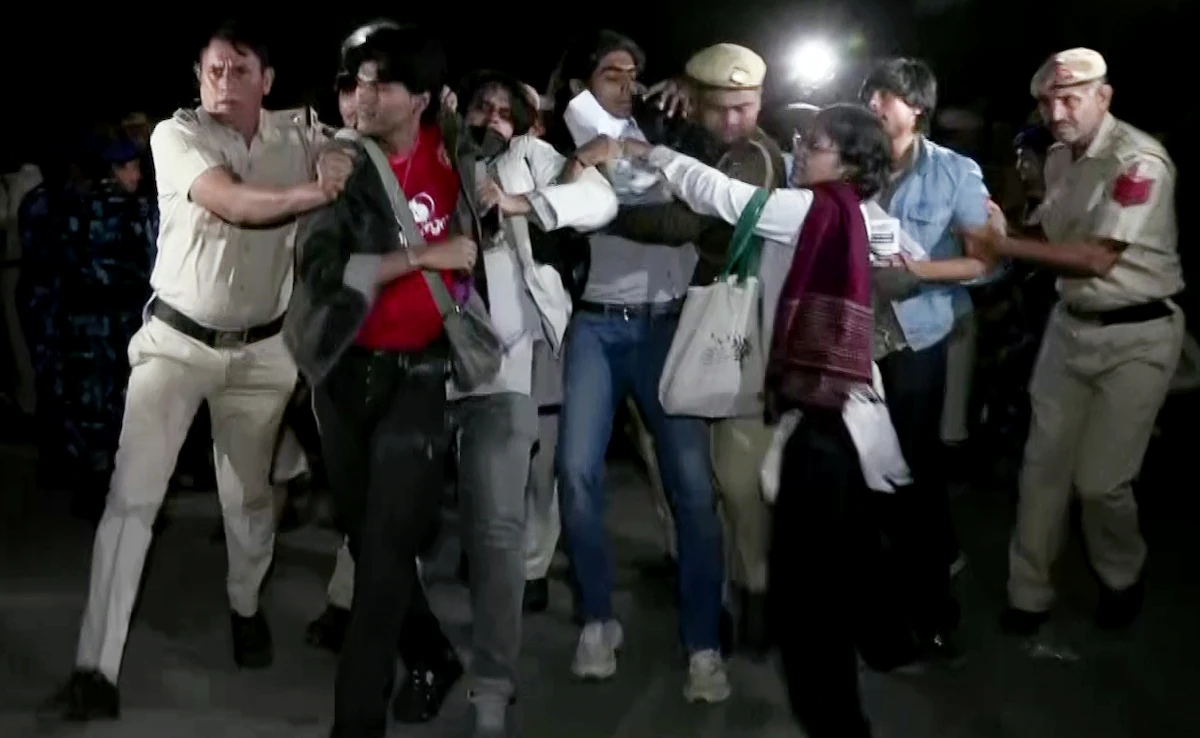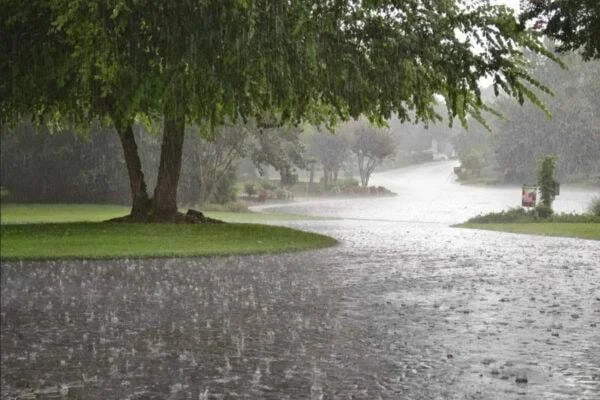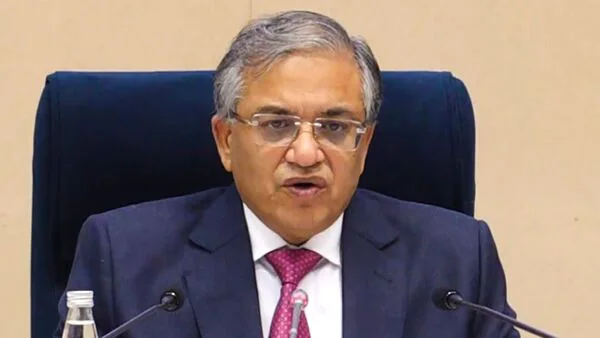A large crowd of residents, students and civil-society activists gathered on Sunday at India Gate, New Delhi, to protest the worsening air quality in the capital and raise allegations that government agencies are “fudging” official pollution data. The demonstration came as the city continues to reel from winter smog and passengers report respiratory distress across the National Capital Region.
Protesters held placards reading “Smog se Azadi”, “Breathing is killing me” and “Hawa sarkari nahi, sabka hai” while citing apparent disparities between visibility on the streets and the government’s reported Air Quality Index (AQI). One participant, Jyothsna Singh, said that while she experienced chest pain during her morning walk, the monitoring station near her locality registered only a moderate reading, raising questions about transparency and sensor accuracy.
At the site, Delhi Police and paramilitary personnel detained several protesters. Police said the rally was in violation of rules, since India Gate is restricted for such assemblies; the Deputy Commissioner of Police (New Delhi) described the detentions as “preventive measures”. Organisers countered by saying the protest was peaceful and aimed solely at demanding clean-air policy, not politics.
Activists accused the government of tampering with monitoring station data through water-sprinkling before readings and claimed private monitors recorded AQI values exceeding 999 in certain zones during the same period. They demanded independent audits of government sensors and immediate action on vehicular emissions, construction-site dust and biomass burning.
Government officials responded by listing recent interventions, deployment of smog-guns, closure notices to 8,000 industrial units, sprinkling operations and targeting of older diesel vehicles and reiterated that full clearing of air cannot happen overnight. They maintained that the official data is validated by the Central Pollution Control Board (CPCB) and the Commission for Air Quality Management (CAQM).
The protest highlights the mounting frustration among Delhi’s citizens over persistent pollution and the gap they perceive between lived experience and official metrics. As winter deepens and AQI worsens, demands for accountability and meaningful action are gaining visible momentum in the capital.




